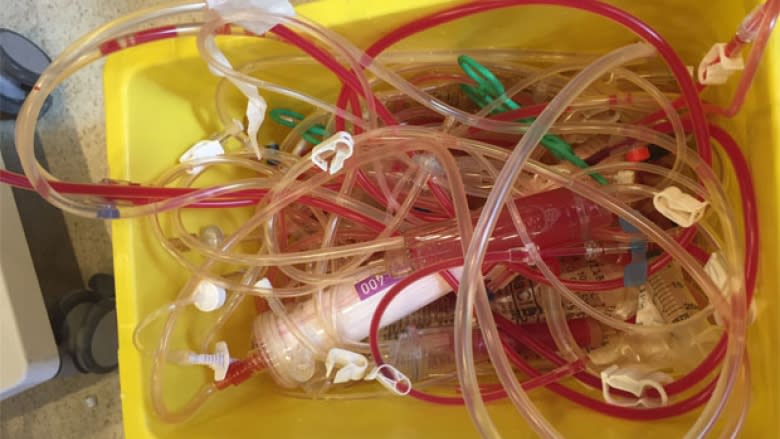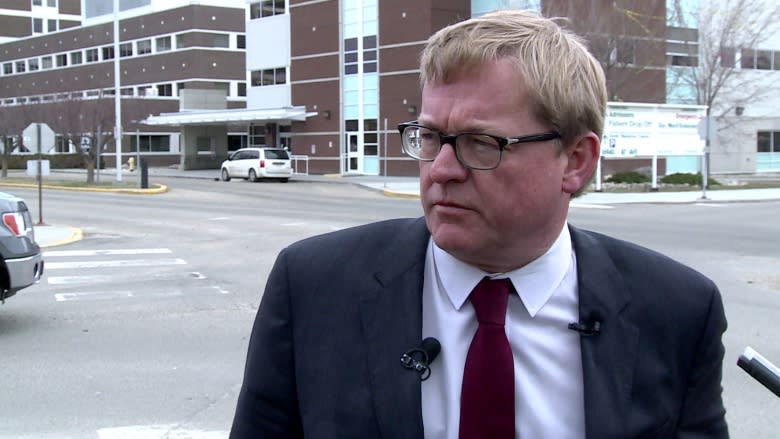Health care cuts mean 'bargain-bin' medicine, NDP says
Budget cuts to health care are forcing the province's hospitals to cut costs in ways that are putting workers at risk, according to Alberta's New Democrats.
"Hospitals are scrambling to look for savings," said David Eggen, an NDP candidate seeking re-election in Edmonton-Calder.
"We believe this is resulting in bargain-bin medicine that compromises the health and safety of both patients and workers in hospitals across the province."
Eggen said workers at Alberta Health Services recently leaked a presentation from the organization, which describes changes to what is disposed of as medical waste.
In the presentation, which the party provided to media, AHS outlined changes to the Northern Alberta Renal Program, which provides hemodialysis to patients.
The presentation directs workers to dispose of used dialyzers and the tubes that carry a patient's blood into general waste, which can be placed in garbage bags instead of the durable containers required for biomedical waste.
AHS notes that it costs at least four times as much to dispose of biomedical waste than general waste.
It also states the practice is acceptable under Canadian Safety Association standards as long as they do not include needles and other sharp objects or "dripping blood."
Still, Eggen accused the Progressive Conservatives of forcing hospitals to "dumb down the level of safety." He argued the fact that the document was leaked was proof that workers are concerned.
"It's very easy for that blood to escape," he said.
"Albertans want and need our healthcare system to be improved."
Health Minister Stephen Mandel said AHS' previous approach of considering dialysis tubes as biomedical waste was a "very cautious" policy. But he said the province must be willing to find ways to cut costs that do not compromise patient safety.
"If it's proven to be clear and not any danger, then we should do it the most effective and expeditious way," Mandel said.
He added that he was confident in the decisions that AHS made in response to dialysis waste.
"Just like any other job, they should do it properly and they will do it properly."
In an emailed response sent to CBC News, AHS spokeswoman Shelly Willsey reiterated the changes are still within CSA standards. She said the items being disposed have come in contact with blood, but no longer have blood in them when they are put into general waste.
"AHS continuously looks for opportunities to reduce costs and maintain safe environments for patients and patients," she wrote.
Eggen is calling for a review into how hospitals get rid of their dialysis waste.



